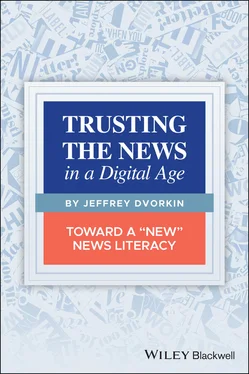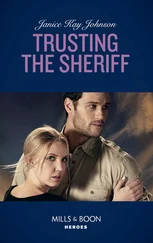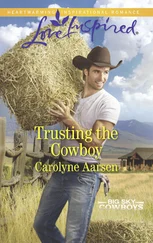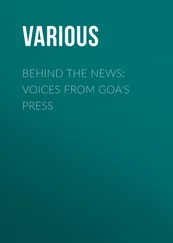Jeffrey Dvorkin - Trusting the News in a Digital Age
Здесь есть возможность читать онлайн «Jeffrey Dvorkin - Trusting the News in a Digital Age» — ознакомительный отрывок электронной книги совершенно бесплатно, а после прочтения отрывка купить полную версию. В некоторых случаях можно слушать аудио, скачать через торрент в формате fb2 и присутствует краткое содержание. Жанр: unrecognised, на английском языке. Описание произведения, (предисловие) а так же отзывы посетителей доступны на портале библиотеки ЛибКат.
- Название:Trusting the News in a Digital Age
- Автор:
- Жанр:
- Год:неизвестен
- ISBN:нет данных
- Рейтинг книги:4 / 5. Голосов: 1
-
Избранное:Добавить в избранное
- Отзывы:
-
Ваша оценка:
- 80
- 1
- 2
- 3
- 4
- 5
Trusting the News in a Digital Age: краткое содержание, описание и аннотация
Предлагаем к чтению аннотацию, описание, краткое содержание или предисловие (зависит от того, что написал сам автор книги «Trusting the News in a Digital Age»). Если вы не нашли необходимую информацию о книге — напишите в комментариях, мы постараемся отыскать её.
How to use critical thinking to discern real news from fake news in a Digital Age
Trusting the News in a Digital Age
Trusting the News in a Digital Age
Trusting the News in the Digital Age
Trusting the News in a Digital Age — читать онлайн ознакомительный отрывок
Ниже представлен текст книги, разбитый по страницам. Система сохранения места последней прочитанной страницы, позволяет с удобством читать онлайн бесплатно книгу «Trusting the News in a Digital Age», без необходимости каждый раз заново искать на чём Вы остановились. Поставьте закладку, и сможете в любой момент перейти на страницу, на которой закончили чтение.
Интервал:
Закладка:
This is becoming a more complicated bargain for many people: is it worth allowing Google to know what we do online in exchange for having a Gmail account? Most people would still say “yes.” Others are increasingly questioning whether we have traded away too much. But the Internet cannot be “un‐invented,” and we need to learn to use our access to information wisely.
That is another aspect of news literacy.
Why News Literacy Now?
News literacy is about regaining some of the advantages we have as citizens and as news consumers. To use a sports metaphor, it is about playing “offense” and “defense” at the same time in what is an increasingly rough sport. News literacy is about simply being aware of the pressures and prospects that the digital environment delivers.
As such, we need to apply our best critical thinking to everything we see, read, and hear in the media. In the digital age, it's no longer enough to let the tsunami of information wash over us. In effect, we will drown in what's called “TMI” – too much information. We need to have access to the media to know what is happening in order to make informed choices about the events – small and great – that affect our lives. And we need to be aware of the tradeoffs that access implies. So we need a better set of filters to handle it all.
News literacy gives us the tools to handle digital information more effectively.
To begin with, we also need to ask some tough questions about the information we are consuming, such as: What can I conclude from this news report? Is there anything in it worth keeping in mind, or can I just move on? Am I getting the truth or getting close to what might be considered the truth? Or am I being “spun” and manipulated? In the digital age, we need to be more careful without becoming unduly paranoid!
One important advantage (among many) of the digital era is that it gives us the tools to do a proper analysis … to dig deeper into what we are being told. These tools allow YOU, as the consumer of all this information, to really be in charge of the information flow.
This book will help you navigate these tools so you can determine what information is reliable and what is not – and why it is not.
News literacy is also about us, personally; it is about our reputations as citizens, as journalists, and as citizen‐journalists. None of us wants to be known as someone who has passed along faulty or misleading information. We want (and expect) to be considered among the fully engaged, intelligent, and informed citizenry, pushing our leaders to do what's right and what's smart.
News literacy is having the critical thinking skills to judge reliability and credibility in news reports, no matter where they originate in print, broadcast, online, or social media. It is about taking back control in a complex environment.
What Is “Reliable” Information?
At a time when public opinion polls say the public has less trust in media in general and in the news in particular, who are we to trust and what are we to believe?
The proliferation of social media has had the effect of giving a voice to the voiceless. But that's not how it began.
The proliferation of available information provided by traditional media, digital platforms, and their availability on “apps” has transformed our media landscape. Apps have changed the way we live, in many ways for the better. But there are, as with all new technologies, some serious downsides. Facebook especially has come under criticism for allowing certain political users to spread rumors, false information, and, in some cases, undermine normal political discourse. Twitter works by allowing anyone to spread information, whether real or imaginary. Too often the public, swamped by this flow of content, is unable to find the time verify a tweet or a Facebook posting. Whoever has put this bite of information online is rarely held accountable for the consequences.
How the News Happens Now
But it has not been entirely negative. For journalism, there has been a range of enormous benefits: the ability to connect and to see, hear, and feel what's happening both nearby and far away has truly made our media lives feel as though we live in a global village. We can better understand what life is like (or should be like) in an African village, in an Indian city, in an Indigenous community, in a small town going through massive unemployment. The world and its people are now immediate and available to us in a way that they never were before.
To put it in scientific terms, the Internet delivered the prospect of experiencing life centrifugally . That is to say, in ever‐widening and constantly expanding terms that allow us to better understand what it means to be truly human. This is where the information consumer can find both “surprise” and “delight.” This is the original promise that the Internet made available. If we want it.
At the same time, an opposite tendency is emerging: a centripetal force, which, like an informational whirlpool, pulls us into smaller and smaller comfort zones of recognizable facts and feelings. It disconnects us from that larger world that the Internet promised to deliver. It is a safer way to experience the Internet.
At a time of “informational overload” from the news, many people say they are experiencing a form of “compassion fatigue.” This is the sense that the world and its numerous problems are too much to bear, and that people need to seek relief and escape from the news. This results in the inundation of cat videos, personality quizzes, celebrity news, junk mail, and pornography. These things are made increasingly available through “clickbait,” by which many media, both mainstream and non‐mainstream, try everything to regain the audience (and customers) that have been dispersed by the Internet. “Clickbait” teases and tempts the audience into clicking on a picture or a headline that may promise more (or less) than it should. We'll explore that, too.
News literacy gives us a way of resisting the less‐than‐useful tendencies of modern journalism. It provides the intellectual challenges that can show us why some news is reliable while other news is not.
What's at Stake?
Will we be able to connect with the original promise of the Internet – the promise that the news can make us more free, more democratic, more independent, and more connected? Or will we be moved into smaller and smaller units of self‐reliance, anti‐social behaviors, and disconnection? We will explore how the concept of news literacy can work to support our better social instincts. We will understand how the news works both for us and against us. And we will have the tools to do it properly.
As news organizations on every platform feel the pressure of public scrutiny, all media are attempting to find ways to restore and enhance their reputations with the public. This is not just a matter of holding up the news standards, there is also a financial consequence: it’s called journalistic credibility.
Finding ways to manage the ethical issues around credibility has become a matter of some urgency for many news organizations. As the accusations of bias proliferate from partisan corners of the Internet, journalism has been put on the defensive.
While some news organizations have gone public by placing their ethical guidelines and practices on their websites for all to see, we have also seen a renewed effort by academics to help the public and media organizations find more useful ways of informing the public about best practices when it comes to journalistic and media ethics.
The Scripps Howard School of Journalism at the University of Ohio has been at the forefront of discussions about choosing the best option when confronted with an ethical dilemma. Or in some cases, choosing the least‐worst option.
Читать дальшеИнтервал:
Закладка:
Похожие книги на «Trusting the News in a Digital Age»
Представляем Вашему вниманию похожие книги на «Trusting the News in a Digital Age» списком для выбора. Мы отобрали схожую по названию и смыслу литературу в надежде предоставить читателям больше вариантов отыскать новые, интересные, ещё непрочитанные произведения.
Обсуждение, отзывы о книге «Trusting the News in a Digital Age» и просто собственные мнения читателей. Оставьте ваши комментарии, напишите, что Вы думаете о произведении, его смысле или главных героях. Укажите что конкретно понравилось, а что нет, и почему Вы так считаете.












